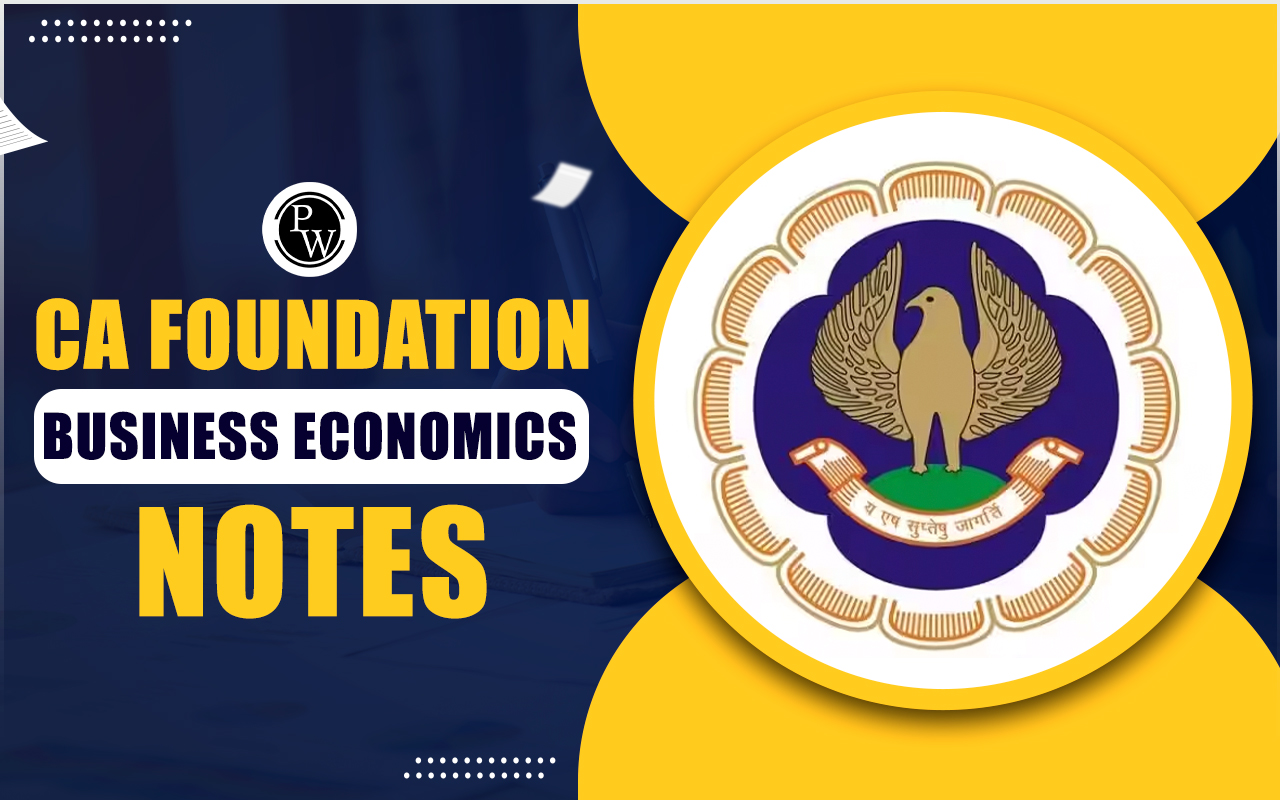
Management accounting, a vital aspect of a company's financial strategy, provides essential data for making internal decisions. It's all about catering to the needs of those within the organization, like top-level executives and managers. In this article, we delve into the wide-ranging scope of management accounting.
Understanding management accounting is crucial for CA Exams . With a deep understanding of this field, individuals can unlock the CA career path. PW CA Course offers detailed insights into management accounting, paving the way for career advancement.What is Management Accounting?
In management accounting , the main goal is to gather and study data about day-to-day operations. This information is then turned into useful insights that help make smart decisions for the business. Management accountants dig deep into numbers like income, expenses, budgets, and how well the company is doing. They use this info to predict future trends, set budgets, figure out costs, and advise on money matters.Why Understand Scope of Management Accounting?
Understanding management accounting is really important for a few key reasons:- Helps Leaders Make Smart Decisions : It gives leaders a good grasp of finances, so they can make better choices that benefit the company's future plans.
- Smoothens Operations and Boosts Productivity : When management accounting is in place, things run more smoothly in the day-to-day operations of the company. This means tasks get done more efficiently, which boosts productivity.
- Eases Business Strategy Planning and Execution : Planning and executing strategies for the business become much easier with management accounting. It helps companies figure out the best ways to achieve their goals.
- Identifies and Deals with Financial Risks : Management accounting helps to spot any financial risks ahead of time. This means the company can take steps to deal with them before they become big problems.
- Sets and Achieves Performance Goals : With management accounting, companies can set specific goals to improve their performance. It helps them track progress and make adjustments as needed to reach those goals.
- Ensures Compliance with Financial Rules : There are a lot of rules and regulations when it comes to finances. Management accounting helps ensure that the company follows all these rules properly.
- Finds Ways to Save Money and Manage Resources Better : It helps companies find ways to save money and manage their resources more effectively. This could mean cutting unnecessary expenses or finding better ways to use existing resources.
- Improves Efficiency with New Technologies : By integrating new technologies, management accounting helps improve efficiency in various tasks. It also enhances the company's ability to analyze data and make informed decisions based on that analysis.
Also Read: Elements of Cost in Cost Accounting
Scope of Management Accounting
The scope of management accounting encompasses the following key areas:Variance Analysis
Variance analysis involves tracking and analyzing differences between budgeted and actual figures. This helps management understand the causes and impacts of these variances on future operations. Key areas analyzed include sales volume, material costs, labor efficiency, and overheads.Risk Management
In management accounting, risk management involves identifying, assessing, and prioritizing risks. Accountants use tools to measure risks and develop strategies to mitigate them, often collaborating with risk managers to implement these strategies effectively.Internal Financial Reporting
Internal financial reporting addresses the specific informational needs of managers. Unlike external reports, these are tailored to focus on specific areas such as product lines or production facilities, providing relevant financial and operational data for informed decision-making.Capital Structure Management
Management accountants determine the best mix of equity and debt to minimize the cost of capital while maximizing financial performance. They analyze various financing options to ensure the company's financial stability and growth.Inventory Management
Effective inventory management ensures the right amount of stock is available to meet customer demand without incurring excessive holding costs. Techniques like Just-In-Time (JIT) are used to optimize inventory levels and reduce costs.Budgeting and Forecasting
Budgeting involves creating detailed financial plans that align with the organization’s strategic goals, guiding resource allocation and controlling expenditures. Forecasting uses historical data and predictive models to estimate future financial outcomes, aiding in strategic planning.Cost Analysis and Management
Cost analysis provides insights into business operation costs, identifying areas for cost efficiency. Cost management strategies aim to control and reduce costs through improved supplier contracts, process efficiencies, and technology use.Project Accounting
Project accounting tracks and reports the financial results of specific projects, monitoring cost overruns and financial progress. Separate accounts are set up for projects to track costs, revenues, and profitability in real-time, enhancing transparency.Performance Measurement
Performance measurement includes both financial and non-financial indicators such as ROI, EVA, customer satisfaction, and production quality. These tools offer a broad perspective on business performance, integrating financial measures with strategic objectives.Strategic Decision Making
Management accountants provide financial analyses for strategic decisions, assessing profitability, feasibility, and risk. Techniques like SWOT analysis and Porter’s Five Forces offer a comprehensive view of the strategic environment.Data Interpretation
Data interpretation transforms complex financial data into understandable insights for strategic decision-making. Techniques like statistical analysis, trend analysis, and visualization tools are used to effectively communicate data across various domains such as cost management, forecasting, and risk assessment. Unlock your CA career path with PW CA Courses. Gain in-depth insights into management accounting and advance your career with our comprehensive course. Enroll now for success!| Also Check | |
| Auditors Responsibilities and Liabilities | Internal Audit Function Effectiveness |
| Fraud Examination | Audit Risk Assessment |
| Auditing Standards and Practices | Credit Management and Control |
Scope of Management Accounting FAQs
What is the importance of management accounting?
Management accounting is crucial for informed decision-making, operational efficiency, risk management, and financial compliance within organizations.
What are the key areas within the scope of management accounting?
Key areas include variance analysis, risk management, internal financial reporting, capital structure management, inventory management, budgeting, cost analysis, project accounting, performance measurement, and strategic decision-making.
How does management accounting benefit businesses?
Management accounting helps leaders make smart decisions, boosts operational efficiency, aids in strategic planning, identifies financial risks, sets performance goals, ensures compliance, and improves resource management.
What techniques are used in management accounting?
Techniques include variance analysis, cost analysis, budgeting, forecasting, project accounting, performance measurement, strategic decision-making tools like SWOT analysis, and data interpretation methods such as statistical analysis and trend analysis.
Why is understanding management accounting important for career advancement?
Deep understanding of management accounting is essential for unlocking career opportunities in fields like chartered accountancy, enabling individuals to provide valuable financial insights and support strategic decision-making within organizations.
🔥 Trending Blogs
Talk to a counsellorHave doubts? Our support team will be happy to assist you!

Check out these Related Articles
Free Learning Resources
PW Books
Notes (Class 10-12)
PW Study Materials
Notes (Class 6-9)
Ncert Solutions
Govt Exams
Class 6th to 12th Online Courses
Govt Job Exams Courses
UPSC Coaching
Defence Exam Coaching
Gate Exam Coaching
Other Exams
Know about Physics Wallah
Physics Wallah is an Indian edtech platform that provides accessible & comprehensive learning experiences to students from Class 6th to postgraduate level. We also provide extensive NCERT solutions, sample paper, NEET, JEE Mains, BITSAT previous year papers & more such resources to students. Physics Wallah also caters to over 3.5 million registered students and over 78 lakh+ Youtube subscribers with 4.8 rating on its app.
We Stand Out because
We provide students with intensive courses with India’s qualified & experienced faculties & mentors. PW strives to make the learning experience comprehensive and accessible for students of all sections of society. We believe in empowering every single student who couldn't dream of a good career in engineering and medical field earlier.
Our Key Focus Areas
Physics Wallah's main focus is to make the learning experience as economical as possible for all students. With our affordable courses like Lakshya, Udaan and Arjuna and many others, we have been able to provide a platform for lakhs of aspirants. From providing Chemistry, Maths, Physics formula to giving e-books of eminent authors like RD Sharma, RS Aggarwal and Lakhmir Singh, PW focuses on every single student's need for preparation.
What Makes Us Different
Physics Wallah strives to develop a comprehensive pedagogical structure for students, where they get a state-of-the-art learning experience with study material and resources. Apart from catering students preparing for JEE Mains and NEET, PW also provides study material for each state board like Uttar Pradesh, Bihar, and others
Copyright © 2026 Physicswallah Limited All rights reserved.









